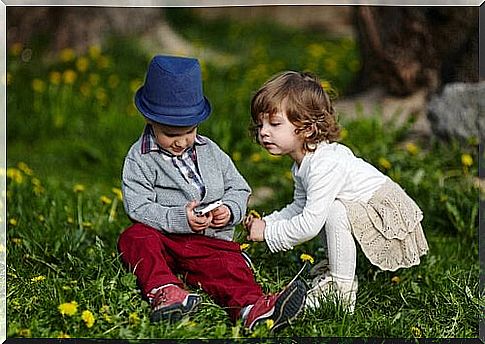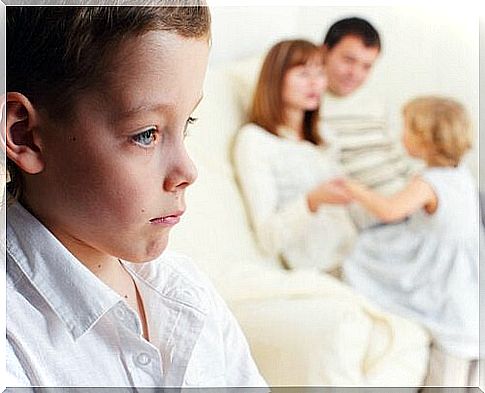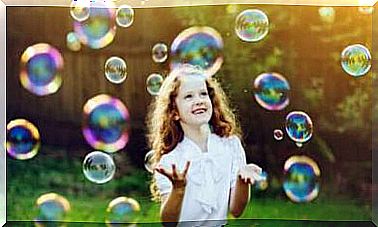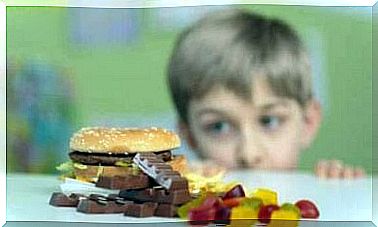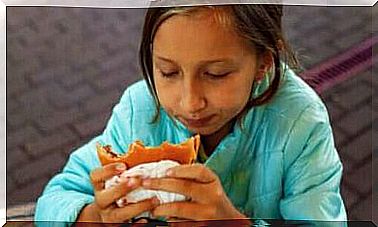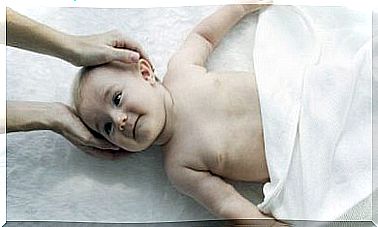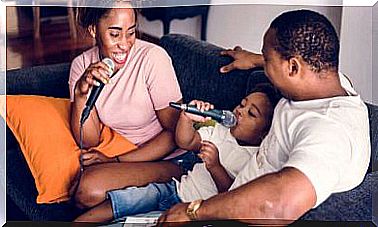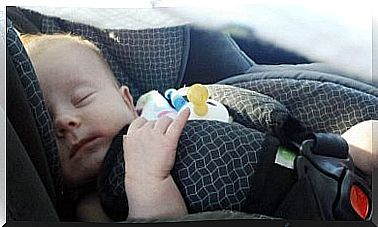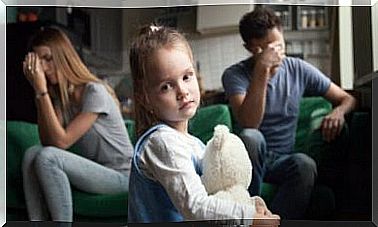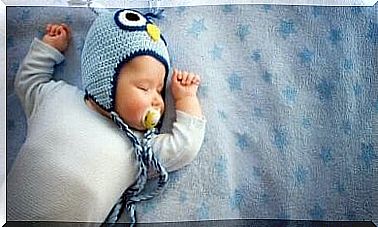Jealousy In Children: Causes And Solutions
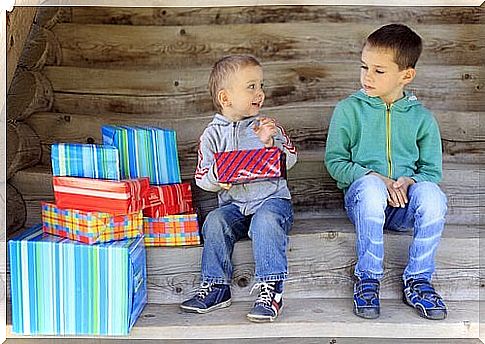
Jealousy is a negative feeling that eats away at the soul of a person who feels it. In adults, it often has to do with money problems, dramas in the workplace and relationship problems. But what can cause jealousy in children? In this article we will find out.
Jealousy is a feeling of bitter sadness or anxiety about other people’s possessions or successes, or a desire to possess something that is not ours. Even though people often deny it, jealousy is a very common feeling.
This sentiment is more or less universal. As much as we try to avoid it, we will probably all be jealous at some point. This is a natural response to our social environment.
In many cases we are not jealous because we are missing something. People who are jealous can enjoy a comfortable life and be quite privileged. Yet they still feel resentment for the happiness, material things or even the opportunities that others have.
Jealousy in Children: What Causes It?
Jealousy is usually aroused by things that are important to us. For children this might be:
- Grades at school
- Toys or other material possessions
- friends
- Physical characteristics such as being taller, thinner or stronger
- Attention from adults (especially from parents and teachers)
As we said, jealousy in children and in adults is not related to “not having” something. In many cases , children have almost everything they could wish for, but when they see that their friends have something they like, they are immediately jealous and want it too.
One explanation for these feelings may be that these children are not used to feeling “disadvantaged” in relation to others.
They have always been the ones who have everything that others want. When the roles are reversed, they are not happy about it at all.
What can you do about jealousy in children
Beyond the specific situation that caused this feeling, jealousy is also caused by an underlying lack of confidence, attention, or self-esteem, which needs to be addressed.
In other words, children who always want more or want to be better than others often believe that they will not be heard, loved or appreciated otherwise.
Below are some practical tips that can help get rid of this resentment.
Don’t compare them to other kids
Equation is the thief of joy, is a saying. Don’t say, “You should be more like Peter, who gets good grades” or “Why can’t you score like John?”
You will not motivate your child to try harder. You will even create an unhealthy atmosphere of competition.
What you can do instead is set realistic goals based on your child’s own abilities. These should be achievable in the short to medium term to keep the child excited.
This way you encourage your child to be the best version of themselves rather than better than the rest.
Give him attention and love
Few things are more important in your childhood than feeling wanted. The attention, understanding and respect a child receives should not be based on their grades, sports results or any other measure.
Show your child that he means a lot to you, no matter the circumstances. This way, he won’t be overcome with jealousy if a sibling or friend gets something he wants. Parental attention is the best medicine for jealousy.
Talk to your child about his feelings
By this we don’t mean that you should say that jealousy has negative consequences, or “forbid” him to be jealous of others. Jealousy in children can be used in a positive way.
How can you handle this? Try to encourage a sense of healthy competition. When a friend gets better grades in school, your child can do a better job of improving their own.
If another child is better at tennis, they may be able to train and encourage each other or even compete in a doubles tournament together.
Jealousy in children can be an important driving force. But it should always be seen as a reason to try harder and never as a desire that someone else is worse.
Finally, remember that children’s behavior is often a reflection of that of the parents. For this reason, you should avoid making mean comments (especially in front of your kids).
Help your child develop an understanding and appreciation for the achievements of others.
